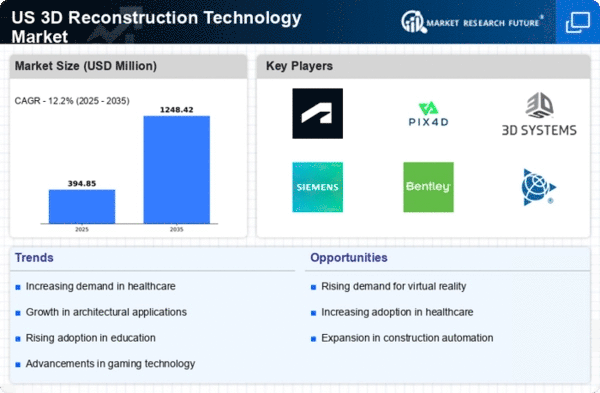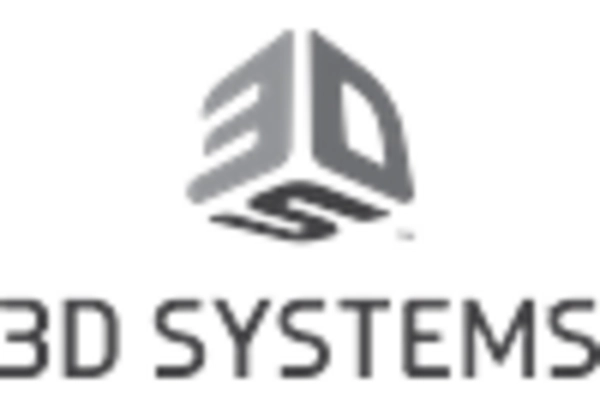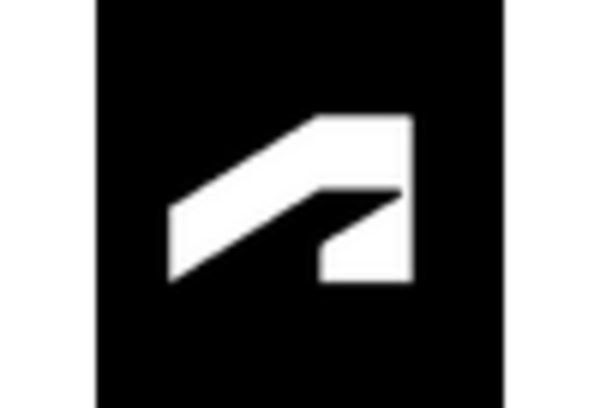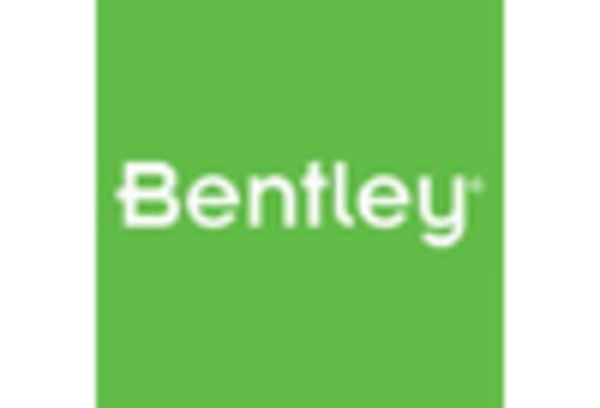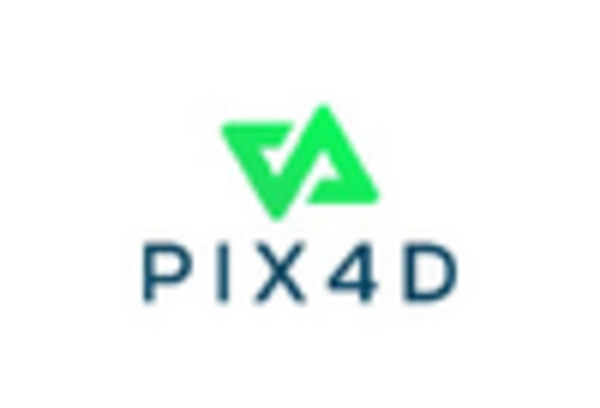Increased Investment in Smart Cities
The push towards smart cities in the US is driving the demand for 3D reconstruction-technology. Urban planners and local governments are leveraging this technology to create accurate digital representations of city infrastructure, which aids in planning and development. The market for smart city technologies is expected to grow to $1 trillion by 2025, with 3D reconstruction playing a crucial role in urban development projects. This technology enables better resource management, traffic flow analysis, and environmental impact assessments. As cities become more complex, the need for sophisticated modeling tools like 3D reconstruction-technology becomes increasingly vital, thereby propelling market growth.
Rising Adoption in Healthcare Imaging
The healthcare sector is increasingly utilizing 3D reconstruction-technology for medical imaging and diagnostics. This technology allows for the creation of detailed 3D models from imaging data, which can significantly enhance surgical planning and patient outcomes. The US healthcare imaging market is expected to reach $50 billion by 2025, with 3D reconstruction playing a pivotal role in this growth. By providing clearer and more accurate representations of anatomical structures, this technology aids in better decision-making for healthcare professionals. Consequently, the rising adoption of 3D reconstruction-technology in healthcare is a key driver, as it contributes to improved patient care and operational efficiency.
Advancements in Educational Tools and Training
Educational institutions are increasingly incorporating 3D reconstruction-technology into their curricula to enhance learning experiences. This technology allows students to interact with complex concepts through immersive 3D models, making learning more engaging and effective. The US education technology market is projected to grow to $350 billion by 2025, with 3D reconstruction-technology being a significant component of this evolution. By providing realistic simulations and visualizations, this technology aids in fields such as engineering, architecture, and medicine. The growing emphasis on experiential learning and hands-on training is likely to drive the adoption of 3D reconstruction-technology in educational settings, thereby expanding its market presence.
Surge in Gaming and Entertainment Applications
The gaming and entertainment industries are experiencing a renaissance, with 3D reconstruction-technology at the forefront of this transformation. As gaming companies strive to create immersive experiences, the demand for realistic 3D environments is surging. The US gaming market is projected to exceed $200 billion by 2025, with a substantial portion of this growth driven by advancements in 3D graphics and modeling. This trend indicates a robust opportunity for the 3D reconstruction-technology market, as developers seek to enhance visual fidelity and user engagement. The integration of this technology into game design not only improves aesthetics but also enriches gameplay, making it a critical driver in the industry.
Growing Demand in Construction and Architecture
The construction and architecture sectors are increasingly adopting 3D reconstruction-technology to enhance project visualization and planning. This technology allows for the creation of detailed 3D models from 2D blueprints, facilitating better communication among stakeholders. In the US, the construction industry is projected to reach a value of $1.8 trillion by 2025, with a significant portion of this growth attributed to technological advancements. The 3D reconstruction-technology market is poised to benefit from this trend, as firms seek to improve efficiency and reduce costs through precise modeling and simulation. As a result, the integration of 3D reconstruction-technology is becoming a standard practice in architectural design and construction management.


